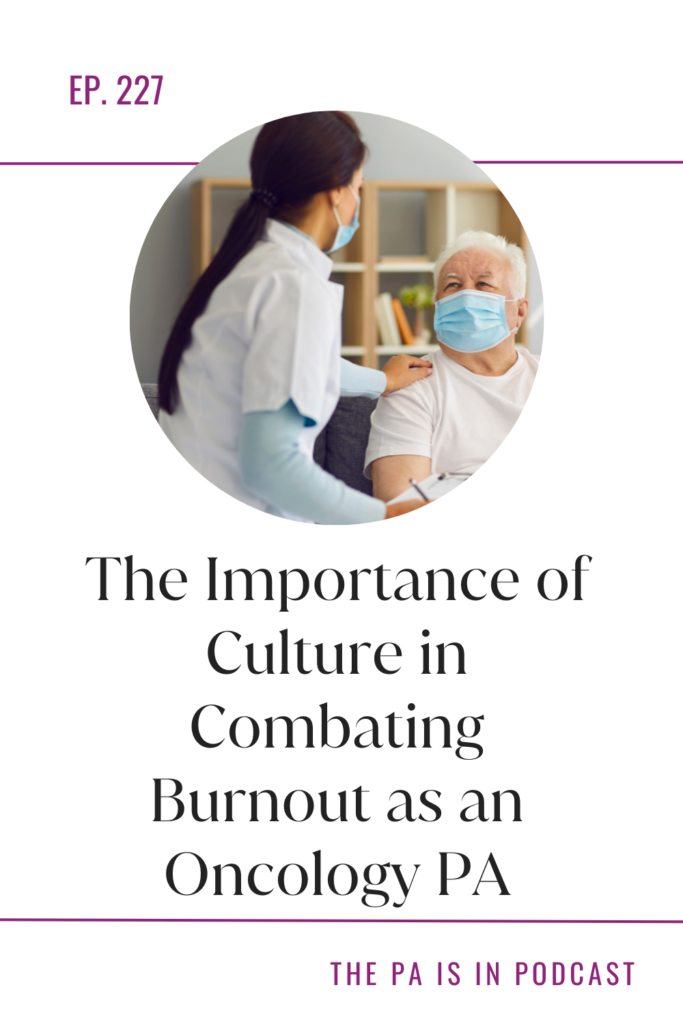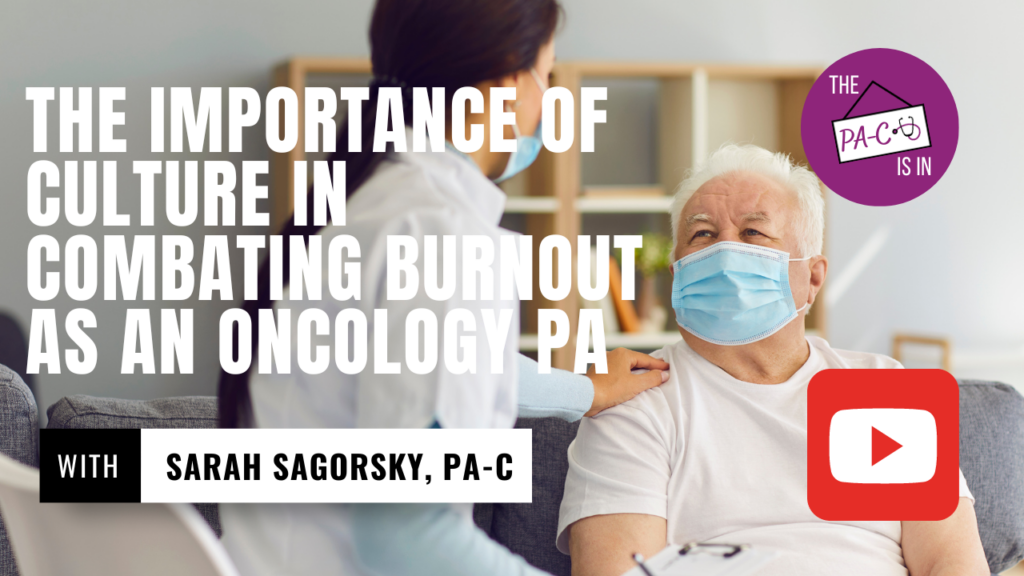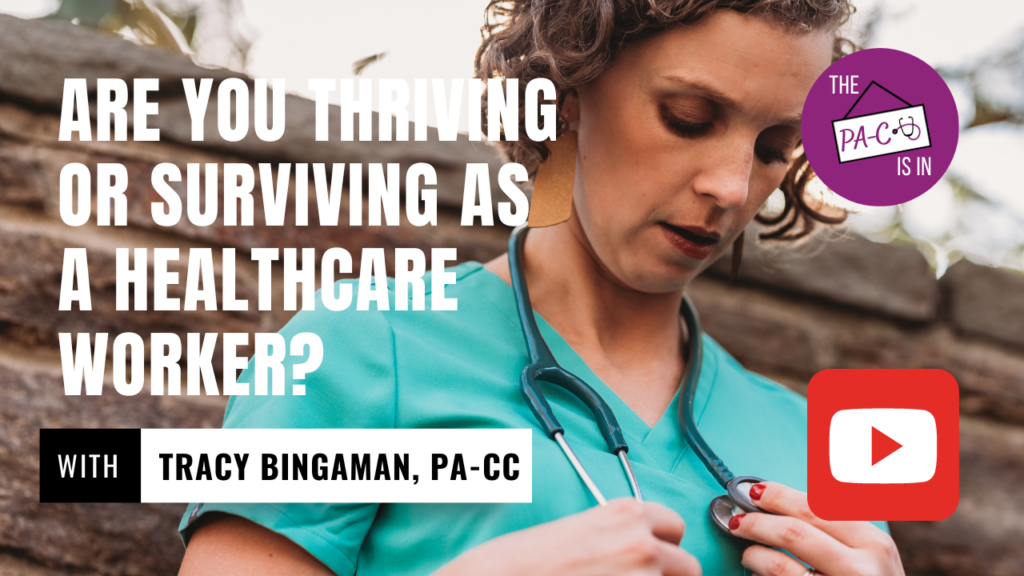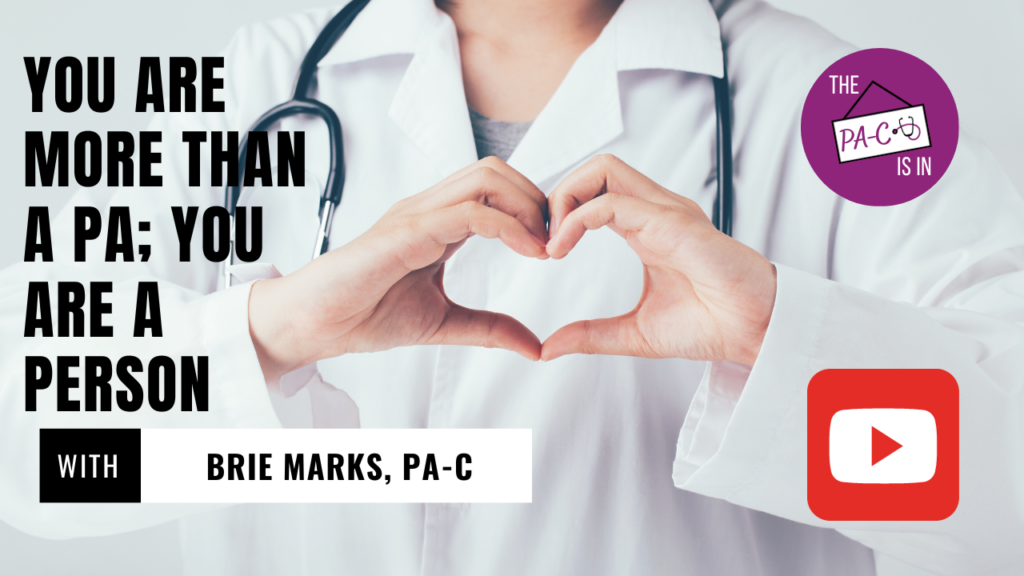
Meet Sarah Sagorsky, Oncology PA
Sarah is a medical oncology PA and mom of two young children. She works in thoracic medical oncology caring for patients with non-small cell lung cancer, small cell lung cancer, and mesothelioma. She currently practices as the Lead Physician Assistant within the Upper Aerodigestive Medical Oncology Department at the Johns Hopkins Kimmel Cancer Center at Bayview.
Sarah works 3 days in the outpatient setting and 1 day in the inpatient setting. In her outpatient role, Sarah is involved in the initial diagnosis and creating a treatment plan for patients. She also provides patient education and monitors for toxicities from chemotherapy and immunotherapy. On the inpatient side, Sarah cares for any oncology patients admitted at Bayview. She helps to manage comorbidities and oncological issues while patients are admitted.
By working in both outpatient and inpatient roles, Sarah is able to provide improved continuity of care for her patients.
Listen Here
Watch on YouTube

The Weight of Treating Cancer Patients
There is a heaviness and large mental load inherent to treating cancer patients on a regular basis. A great deal of coordination of care is needed for inpatient to outpatient transitions, as well as discussing care with other providers (hospitalist, PCP, cardiologist, radiation oncologist, surgeon, etc) regarding treatment plans, logistics, and medication adjustments. As an oncology PA, Sarah needs to anticipate the needs of each of her patients, whether they are in the inpatient or outpatient setting.
Working in an academic center, Sarah has lots of support in her role. If patients are in an early stage of disease (stage 1-3), they are cared for by a multidisciplinary group that includes medical oncology, radiation oncology, and surgical oncology.
Point of Care Network
One of Sarah’s main roles in her job is coordinating care between all of the various providers and specialties that a patient may see during their cancer treatment. It is important that she is able to clearly communicate with these various providers and be able to handle the logistics involved in coordinating this care.
Sarah is currently working with POCN, Point of Care Network, to help develop a comprehensive app for PAs and NPs to improve communication between healthcare professionals, increase accessibility of network from a peer-standpoint, provide access to education material for CME, and be able to contact patients in a HIPAA-compliant way through the app.
The app will help to coordinate care for patients and be less time-consuming for PAs and NPs. The logistics of patient care will be streamlined. The app is currently still in testing phases, but it is almost ready to be launched, hopefully by summer of 2024.
Navigating Burnout and Stress
It is emotionally exhausting caring for complex cancer patients. The pressures of working in a high-acuity specialty can hinder a PA’s ability to cope with challenges. Burnout can manifest both emotionally and physically and in different ways for different clinicians.
The effects of stress from work can spill over into home life. If you are very stressed due to work, laundry can pile up, chores can be put off, and you may have a short-fuse with your family. However, if you put more effort into your home life by keeping up with chores and fostering your family relationships, then work can struggle. You can find yourself getting behind on charting because you’re more focused on spending time at home.
It’s hard to find that balance where both work life and home life are thriving. It’s also important to remember that we can’t do all of it by ourselves all the time. We need to ask when we need help, both at work and at home. You need to know your limitations and what you can truly commit to. Setting boundaries allows you to feel accomplished in all areas of your life. Do you need to limit extracurriculars for your children during certain seasons so that you can focus more on rest and filling your cup?
The Importance of Culture and Community
Culture and community are essential to how we care for our patients. As PAs, we need to remember that we are working together towards a common goal – comprehensive care for each patient during one of the most complex times of their lives.
Sarah has a great support system in her hospital. There is cross-coverage amongst her group of PAs and NPs, so that everyone can take time off to get a reprieve. Developing the POCN app will allow for even better communication among her colleagues, as well as provide easy-to-obtain CME, which can be difficult working in a subspecialty.
Sarah believes it is important to surround yourself with people who cheer on your successes and accomplishments. In doing so, you find fulfillment on both personal and professional levels.
COVID-19 has changed us. Providers don’t have as much to give as they did pre-pandemic, so they can be less likely to cheer others on. But it’s important to remember that kindness is free and verbal reassurance goes a long way.
We all have other priorities and other things happening at home, but we all have the same common goal at work – to care for patients.
Fostering Work-Life Balance
We need to start bringing humanity back to healthcare. Burnout should not be the norm in healthcare. Work-life balance is always evolving and will change based on your needs at home and the needs at your clinic. Work-life balance requires constant re-calibration.
Sarah’s most important job is being a mom, so if her kids need her, she needs to leave work. She’s discussed this with her work to make it clear where her priorities are.
As a woman, you shouldn’t feel guilty about allowing your coworkers to cover for you if you have a family obligation. We are our own biggest critics and need to give ourselves more grace. We also need to remember that men aren’t under the same societal pressures.
Calling out due to illness also needs to be normalized. We can’t take care of patients if we’re not well ourselves. Our patients need us, but they need us at our best. One positive of the pandemic is that it has forced us to call out when sick due to quarantining.
Practical Tips for Thriving in a High-Stress Subspeciality
First, it’s important to recognize the symptoms of burnout. Are you feeling more tense or irritable, having difficulty sleeping, or having changes in your appetite? Next, create a plan with your partner or coworker on when and how to intervene. This is especially important after working in healthcare after a life-altering pandemic.
There are many strategies to minimize the stress of working in a high-acuity subspecialty, both mentally and physically. Some examples include therapy, meditation, acupuncture, and exercise.
We are humans who happen to work in healthcare. We need to remember we are people first and providers second.
Other Posts and Videos You’ll Love
Episode 161: Read the blog post, watch on YouTube

Episode 225: Watch on YouTube

Episode 207: Watch on YouTube

Episode 210: Watch on YouTube
